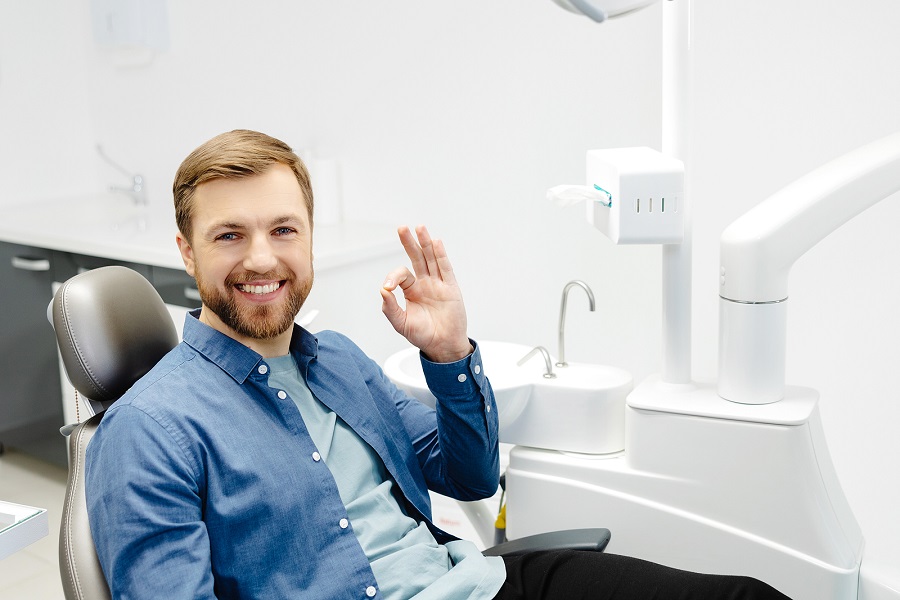![This is a thumbnail image of blog Ask a General Dentist: What Does Saliva Do for Our Mouths? This is a thumbnail image of blog Ask a General Dentist: What Does Saliva Do for Our Mouths?]()
Ask a General Dentist: What Does Saliva Do for Our Mouths?
May 16, 2023![Smile Makeover in Lake Forest, CA Smile Makeover in Lake Forest, CA]()
Transform Your Smile: The Power of a Smile Makeover
Mar 28, 2024![This is a thumbnail image of blog What Procedures Are Performed by a Laser Dentist? This is a thumbnail image of blog What Procedures Are Performed by a Laser Dentist?]()
What Procedures Are Performed by a Laser Dentist?
Jul 18, 2023![Same-Day Implants In Lake Forest, CA Same-Day Implants In Lake Forest, CA]()
Why Dental Implants Are A Game-Changer In Restorative Dentistry?
Sep 19, 2024![This is a thumbnail image of blog Achieve a Radiant Smile: Teeth Whitening in Lake Forest, CA This is a thumbnail image of blog Achieve a Radiant Smile: Teeth Whitening in Lake Forest, CA]()
Achieve a Radiant Smile: Teeth Whitening in Lake Forest, CA
Aug 02, 2024
EMAIL OR CALL: (949) 855-0176
- Patient Education
- Blogs
- Why Are My Gums Bleeding?
- Will I Need a Bone Graft for Dental Implants?
- Which is Better - Invisalign or Braces?
- When Is a Tooth Extraction Necessary?
- What Should I Do if I Chip My Tooth?
- What Do I Do if I Damage My Dentures?
- What Can I Do to Improve My Smile?
- Oral Hygiene Basics
- Oral Cancer Screening
- Options for Replacing Missing Teeth
- Improve Your Smile for Senior Pictures
- I Think My Gums Are Receding
- Do I Need a Root Canal?
- Do I Have Sleep Apnea?
- Reviews
- Contact

Visit a General Dentist to Treat a Chipped Tooth
Have you ever experienced the sudden and unpleasant surprise of chipping a tooth? It can happen in an instant, whether from biting into something too hard or even just a simple accident. But fear not because there is hope for restoring your smile!
What Is a Chipped Tooth?
A chipped tooth is exactly what it sounds like - a tooth that has been damaged or fractured, resulting in a small piece breaking off. It can occur on any tooth, but it's most commonly seen on the front teeth due to their prominence in our smiles.
When you chip a tooth, it can range from a minor cosmetic issue to a more serious dental problem. In some cases, the chip may be so small that it doesn't cause any pain or discomfort. However, even these seemingly harmless chips should not be ignored as they can potentially lead to further damage if left untreated.
What Causes a Chipped Tooth?
There are several factors that can contribute to this common dental problem. One of the main causes is trauma or injury, such as falling or being involved in an accident. Biting down on hard objects like ice cubes, popcorn kernels, or even pens and pencils can also lead to a chip in your tooth. Another cause of chipped teeth is poor dental hygiene. If you don't take proper care of your teeth by brushing and flossing regularly, they become weaker and more susceptible to damage. Additionally, grinding or clenching your teeth (known as bruxism) puts excessive pressure on them, which can result in chips or fractures.
Certain lifestyle habits can also play a role in causing chipped teeth. For example, using your teeth as tools to open packages or bottles puts unnecessary stress on them and increases the risk of chips. Similarly, consuming acidic foods and beverages frequently weakens the enamel over time, making it easier for your teeth to chip. In some cases, genetic factors may make certain individuals more prone to having brittle or weak enamel that is predisposed to chipping. Additionally, age-related wear and tear on the teeth can gradually lead to small chips forming over time.
It's important to remember that while these are common causes of chipped teeth, each person's situation is unique. Therefore it's always best to consult with a general dentist who can assess your specific case and provide appropriate treatment options tailored just for you!
How to Treat a Chipped Tooth
When it comes to treating a chipped tooth, there are several options available depending on the severity of the chip. For minor chips or cracks, dental bonding may be recommended. This involves applying a tooth-colored resin to the affected area and shaping it to match the natural shape of your tooth. The resin is then hardened with a special light, creating a strong bond that restores both function and appearance.
In cases where the chip is more significant or if there is damage to the inner layers of the tooth, a dental crown may be necessary. A crown is essentially a custom-made cap that covers and protects the entire tooth. It not only strengthens the damaged tooth but also improves its overall aesthetics. If you're experiencing pain or sensitivity due to a chipped tooth, your dentist may suggest root canal therapy. This procedure involves removing infected or damaged pulp from inside the tooth and filling it with a special material to prevent further infection.
In some instances, extraction might be required if the chip has caused severe damage beyond repair. However, this is typically considered a last resort option when all other treatments have been exhausted. Remember, treatment for a chipped tooth will vary depending on individual circumstances, so it's important to consult with your general dentist for an accurate diagnosis and personalized treatment plan.
Visit Nicole E. Kuske, DDS, at 22992 El Toro Rd, Lake Forest, CA, 92630, or call (949) 855-0176 for the best dental care tailored to your specific requirements.
Visit Our Office
Office Hours
- MON9:00 am - 3:00 pm
- TUE10:00 am - 7:00 pm
- WED - THU8:00 am - 5:00 pm
- FRIBy appointments only
- SAT - SUNClosed





comments